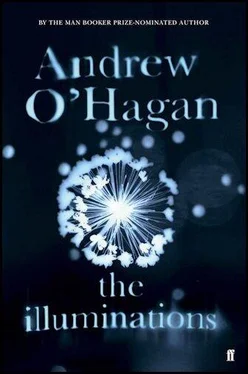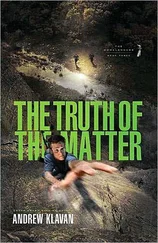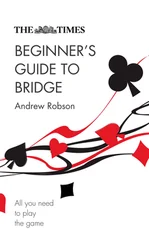He lay back and saw the parade ground at Sandhurst. And then he saw his mother, Alice, in a sky-blue hat with tears in her eyes, her new husband Gordon beside her as they gathered their camera straps and her billowing skirt, the day he passed out from officers’ training. Gran arrived in a taxi that came all the way from Gatwick Airport. He was grateful she’d come and Alice had smiled thinly when he said, after the ceremony, that he wanted to take his gran for a walk down to the chapel. ‘We’ll go and find your ironing board and put it in the car,’ said Alice, always practical. ‘There’s no point leaving it for someone else to take.’
The chapel appeared to move, but it wasn’t the chapel it was the trees that moved and once the rain came down the trees got darker and Anne pointed it out, the way the trees darkened in the rain. She took his arm and was proud of his uniform as they
walked up the path. ‘God, Granny, the world’s going mad and you’re noticing the trees.’
‘Well, that’s life,’ she said. ‘If you weren’t looking you missed it. That’s all I know.’
They walked the length of the chapel and sat to one side under a ragged flag rescued from a battlefield, set high up on the wall in a gilt frame. They were quiet in the pews and that was easy. After a while Anne put her hand over his hand and gave him advice. ‘Be true,’ she said, ‘if not to yourself, then to something more interesting than yourself.’
‘I chose the Royal Western Fusiliers.’
‘All men are sentimental,’ she said. ‘Women get the reputation, but we just cry at the radio. Men are sentimental about institutions. You know: buildings. The old bricks, the old mottos. Harry was the same.’
‘We’re going to rid the world …’
‘Don’t say it,’ she said.
‘But Gran.’
‘The task is to see.’
‘Not for a soldier. There’s a lot to be done.’
‘We don’t
rid the world
, dear. We create it.’
‘We make it safe,’ he said. She just nodded at that and the high windows showed their pattern on the pews. Before they went back to join the others she took a present out of her bag. He still had the paperback somewhere, a book entitled
Theory of Colours
.
‘The colour red doesn’t actually exist,’ she said. ‘It only exists as an idea in your head. Always remember that. You create it yourself when your imagination meets the light.’
His attention flickered as he lay in the Vector. Looking at the letter, he heard another thud down in the valley. The summer
remembers nothing of the winter and nature is a kind of amnesia. He stretched out further and kicked off his boots, considering whether memory is just one of our little sicknesses. It was the sort of topic he used to discuss with Scullion in their happier days. His grandmother had stood up in the chapel at Sandhurst and tapped his cheek.
‘Send me one of your mugshots,’ she said.
And that’s the one she put up on her wall. He saw it the last time he was home on leave, when he went to see Anne in secret. At the time nobody was talking about dementia or anything like that, but he noticed a change. Her mind was wandering as they spoke, and, by the end of his visit, she seemed miles away. She sat in her favourite chair by the window and said the lights on the sea were very festive. Luke imagined she was joking but then he saw the concentration on her face. She said she could feel the cold coming on but this was the sort of Christmas she had always wanted, just me and her and two glasses of sherry.
It was the beginning of something and he knew it. He stayed the whole evening and they spoke about old times. She reminded him of an exhibition they’d seen together, famous photographs of tenement houses and poor children in the Saltmarket. ‘The exposure wasn’t right,’ she said, ‘and the children are blurred for life.’
‘That’s an odd phrase,’ Luke said.
He had gone his own way, but an interest in ‘seeing things’, as Anne called it, was what had made them close. At her flat in Glasgow, when he was young, she set up what she called his ‘little conchological cabinet’ — a term out of Charles Dickens, she told him — which was where he kept shells he’d found and bits of broken plate from the sea. The glass cabinet described their
shared interest in the gathering of facts, their attempt to know life not only by our mistakes but by artistic ordering. When Anne returned from her travels in England she would often bring a new shell or a fancy nugget of Victorian crockery. And she always brought sherbet or a stick of rock from one of the sweet shops. ‘Remember, Gran,’ he said to her last time he was home, the time with the sherry, ‘remember that group of starfish we put in the conchological cabinet?’
‘I liked the stars,’ she said. ‘And one time Jayne Mansfield came to turn on the lights in Blackpool.’
He took her hand by the window. She looked down as if their joined hands formed an element with a life of its own. ‘No, boss,’ he said, laughing. It was the first time he knew she must be getting ill. ‘I’m talking about something in the shape of stars. I mean these creatures that are shaped like stars in the sky and I found them on the beach, remember?’
There was puzzlement on her face for a second and then she smiled as if all the confusion had now cleared from her mind. ‘I know what you’re saying,’ she said. ‘I’m not daft. It’s about the shape of things.’
‘Yes,’ he said. ‘You trained my eye.’
‘I know the cabinet you’re talking about. We made it together.’
‘You guided me.’
She smiled and drank the sherry down. Then she peered into the window glass and said, ‘I lost you.’
‘It was all art, you said. The cabinet.’
‘Giving shape.’
‘Knowing what’s behind appearances,’ Luke said. ‘That’s the photographer’s gift and you have that and it’s a wonderful thing.’
She pecked like a chicken and gave a kiss to the air. ‘We knew the right thing to do with the shells and that’s why we’re pals, why we’ve always been pals,’ she said.
‘And plates,’ Luke had said. ‘You brought those bits of broken plate with the tiny blue patterns and the plates had been washed in the sea for a hundred years or … just fragments. Tiny bits. But I used to imagine them as whole plates laid on a Victorian table with a family sitting down together.’
They looked at each other. He knew he’d be off to Helmand in a few days and wondered if she’d ever be the same again. She raised a finger as if he had finally struck a chord. ‘I could take a picture of that dinner you’re talking about and you could help me,’ she said.
‘I’d love to. Will we do that? Will we get out your cameras and make a brilliant picture?’
Luke lay in the heat of the Vector and wondered why his mother and his grandmother had never clicked. His gran had made too much of the men in their lives, and so had he, and he began to see it as a form of harassment that had affected his mother. Yet he and Anne were friends. He lay back mulling it over and tipped into the kind of sleep where ideas feel like revelations until they slip so easily away.
THE RIDGE
Private Flannigan always set out his tent like a perfectionist. Mosquito net, maggot bag, folded corners: a big lumberjack of a guy pressing down his little corners. He was a born soldier. ‘What’s happening?’ he said when Luke appeared in the camp rubbing
his hair. The captain was carrying a book and he leaned on an old stone wall.
‘Nothing much.’
‘Did you get the head down?’
‘A few zeds, aye.’ Luke began to smile when he saw the delicate way Flannigan was handling his kit. ‘Hey Flange,’ he said. ‘Is this you preparing your evening
Читать дальше











